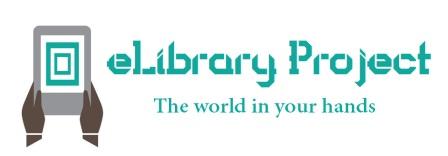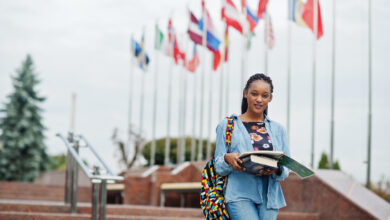eLibrary Project Launches At St. Francis College

eLibrary Project launches at St. Francis College
Pilot project explores the potential of using Kindle eReaders in underdeveloped schools.

Johannesburg, 26 July 2012 – The eLibrary Project officially launched at its beneficiary school, St. Francis College today. The innovative project aims to promote literacy development by providing teens at disadvantaged schools with Kindle eReaders to supplement their access to literature.
60 Kindle eReaders have been purchased by the project directors since the inception of their fundraising activities in May 2012, which focused primarily on their personal networks and some media and publishing corporate donors.
Members of the public, corporate donors, learners, teachers and the principal, Dian Cockcroft, of St. Francis College gathered in a special assembly today to celebrate the hand-over of the devices, pre-loaded with nearly 300 books. Each learner will have their own Kindle for a year which will be accessed in the school library. The excited Grade 11 boys and girls were also tutored today on how to use the Kindles by the project directors, Mark Oppenheimer and David Ansara.
Kindles could play a significant role in improving the reading experience and academic advancement of children. This theory will be put to the test during the pilot project at St. Francis College over the next year, where 60 Grade 11 students will use the devices in the classroom and the school library. This study could provide valuable information for the future use of gadgets in the classroom in South Africa.
David Ansara, co-director of the eLibrary Project says: “We are also very proud to be associated with Pan MacMillan Publishers, who have kindly donated a range of ebook titles by prominent local authors including Mandy Weiner, Khaya Dlanga and Jonathan Jansen.”
For further information on the eLibrary Project please visit their website on www.elibraryproject.org.
A learner at St. Francis College, Benoni, browses a collection of almost 300 eBooks on his Kindle eReader, donated by the eLibrary Project.
Kirsten Innes (17) and her Grade 11 classmates at St. Francis College, Benoni, learn how to use their Kindle eReaders.
eLibrary Project Q&A
What is the e-Library Project all about?
“The eLibrary Project is dedicated to literacy development in South Africa through the use of eReaders,” says David Ansara, Co-Director of the eLibrary Project. “eReaders could play a significant role in improving the reading experience and academic advancement of children in disadvantaged schools and we are testing the feasibility of using these devices on a broader scale.”
When and why was it established?
The eLibrary Project was established in May 2012 by David Ansara and Mark Oppenheimer. Both David and Mark are passionate about education and believe strongly in the power of technology to create positive change in society.
What does the project comprise of?
“There is a strong research component to the project,” says Mark Oppenheimer, Co-Director of the eLibrary Project. “Our research will evaluate the impact that Kindle eBook readers have on a class of Grade 11 students at St Francis College and the pilot project will run over the course of a year, from July 2012 to June 2013.”
“Through the generous support of our donors, we have secured a Kindle for each of the sixty children in the class,” David explains. “We have measured students’ current reading ability in addition to their interest in reading before they are exposed to the devices. This will be used as a benchmark to measure the impact that the devices have on the learners’ reading ability and behaviour.”
“Once the pilot is complete we will submit our research outcomes to policy-makers and NGOs and we hope that our findings will assist these stakeholders in determining whether eBook Readers should be implemented more widely,” says Mark.
What are Kindle eReaders? Kindles are easy-to-use devices that are designed specifically for reading. Unlike other tablet devices such as the iPad, the Kindle uses e-ink technology which makes for a much more comfortable reading experience. Although the Kindle has basic web-browsing ability, it is primarily designed as a reader which means that students won’t be distracted as they would be with other multi-media devices. What are the advantages of the Kindle? The advantage of the Kindle is that it provides learners with access to a large volume of information. The Kindle can store up to 1400 books, has a battery life of a month, and typically costs around R1200 including taxes and shipping. Many books prescribed at school level are copyright-free and Kindles may be a cost-effective way of providing students with access to great literature from around the world. Would learners from disadvantaged areas be able to benefit from the Kindle? “Absolutely. The Kindle is relatively cheap, has a long battery life and is easy to use. As we have seen with the recent textbook crisis in Limpopo, the cost of printing and distributing a large amount of traditional books is prohibitive. Kindles could potentially overcome some of these problems,” says David. The eLibrary Project is also working closely with Pan MacMillan Publishers, who have kindly donated eBooks from prominent South African authors including Mandy Weiner, Eye Witness News journalist and the author of the bestseller, Killing Kebble. The authors of The Youngsters series (edited by Mandy Weiner) have also donated their books. These include popular homegrown talent such as Danny K., Khaya Dlanga, Nik Rabinowitz, Anele Mdoda, and Shaka Sisulu. University of the Free State Professor Jonathan Jansen has also donated two titles, including his latest, Letters to My Children. What are the objectives of the project? Mark: “The objective is to get young people in South Africa to read more and to fall in love with reading. Reading is not only about passing or getting good marks, it is a way of unleashing your imagination and inspiring you to dream.” What has the response from schools been? “The response from the staff and learners at St. Francis College has been overwhelmingly positive,” says David. “In order for a project of this nature to succeed you need the right partners and a supportive environment. Despite scarce resources, St. Francis College prides itself on its strong community focus and high academic standards, and it is the perfect partner for our pilot study.”






